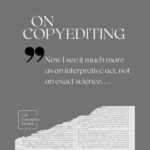Congratulations to Ana Blandiana, a Romanian poet whose poems (translated by Viorica Patea and Paul Scott Derrick) appeared in our Issue 10.2—she’s won the very prestigious Lifetime Recognition Award from the Griffin Trust. The prize, which in the past has been awarded to Frank Bidart, Seamus Heaney, Adrienne Rich, Tomas Tranströmer, and Derek Walcott, “pay[s] tribute to the work and achievements of international artists working in poetry.”
The Griffin Trust, founded in 2000, also awards two books the Griffin Prize for Poetry each year, one written by a Canadian citizen and another by an international writer. Blandiana will receive her award at a ceremony in June 2018 when those named on the Griffin Prize shortlist read their work.
In light of this exciting occasion, Viorica Patea has sent us a brief overview of Blandiana’s life and work.
Viorica Patea:
In Romania’s dubious post-revolutionary days Blandiana was recognized as a symbol of hope and a paragon of human dignity. An aura surrounds Blandiana’s name: “the most noble name in Romanian letters,” as one critic has it. In recognition of her contribution to European culture and her valiant fight for human rights, Blandiana was awarded the Légion d’Honneur in 2009 and the US State Department distinguished her with the Romanian Women of Courage Award in 2014. For her book of poems My Native Land A4 (Bloodaxe, 2010), she was awarded the European Poet of Freedom Prize for 2016 in Gdansk, the Polish city of freedom and birthplace of Solidarnosc. Translated into five languages so far (English, Spanish, Italian, Polish and Catalan), it has been recognized as one of the great European books on liberty. Meditative and philosophical, intimate and public, Blandiana’s poetry explores the motif of freedom in many of its aspects. Looking back, the poet herself says, “being free is much more difficult than not being so, since, paradoxically, freedom of speech diminishes the weight of the poetic word.”
Before Blandiana receives the prize in Toronto on June 7, 2018, Bloodaxe will release a new collection of her poems, The Sun of Hereafter & Ebb of the Senses. This volume consists of two books. The Sun of Hereafter (2000) and Ebb of the Senses (2004) were composed after the fall of the Iron Curtain while Blandiana was actively and selflessly involved in the public sphere as President of the Civic Alliance (1990–2001), a nonpolitical organization that made possible Romania’s integration into the European Union. These two books mark a turning-point in Blandiana’s poetic evolution: They lead towards a new conception of poetry as a reflection on being that culminates in My Native Land A4 (2010), whose title refers to the European paper size, A4, the only truly homeland of a poet who feels always an exile. The Sun of Hereafter & Ebb of the Senses decries the numbness of contemporary consciousness, the void at the center of a culture that embraces materialistic consumerism, and the increasing mechanization and commodification of contemporary life. Blandiana’s poems, rich in symbols and metaphors, document a turbulent and traumatizing period but cultivate a philosophical idiom that fuses the public with the intimate. They adopt a confessional tone that, filtered by Eliot’s aesthetic of impersonality, avoids the anecdotal and documentary details typical of the highly autobiographical style of the eighties.
Viorica Patea’s published books include among others Entre el mito y la realidad: Aproximación a la obra poética de Sylvia Plath (Salamanca: Ediciones Universidad de Salamanca, 1989), and T. S. Eliot’s The Waste Land [La tierra baldía] (Madrid: Ediciones Cátedra, 2005]. She is also the editor of several collections of essays, such as Critical Essays on the Myth of the American Adam (Salamanca: Ediciones Universidad de Salamanca, 2001), and, in collaboration with Paul Derrick, Modernism Revisited: Transgressing Boundaries and Strategies of Renewal in American Poetry (New York and Amsterdam: Rodopi, 2007). Her most recent publication is a collection of essays, Short Story Theories: A Twenty-First-Century Perspective (Rodopi, 2012) which received the Javier Coy Research Award for the best edited book (2013) from the Spanish Association of American Studies.












